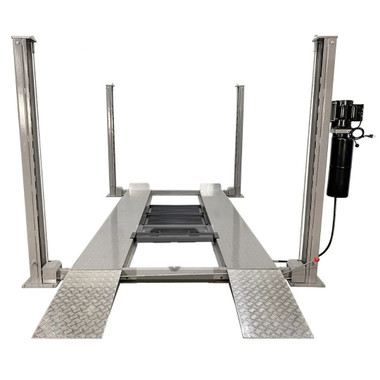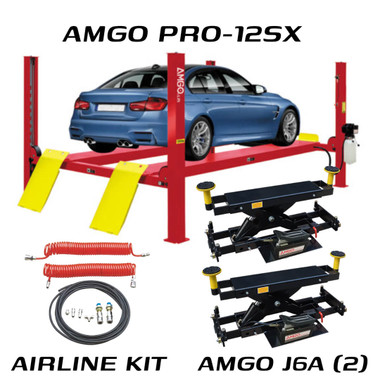The Benefits of Waste Oil Heaters for Your Shop: Save Money and Stay Warm
Estimated 0 min read
Automotive shop owners are turning to energy-efficient waste oil heaters to reduce operational costs and boost the efficiency of the heating system. These cutting-edge devices deliver warmth during the chilliest months. They also symbolize a growing dedication to eco-friendly heating solutions. By embracing waste oil heaters, forward-thinking business leaders turn waste into a valuable resource.
Waste oil heaters stand out as a significant leap forward in automotive shop heating technology. They cut heating expenses while championing environmental care. By recycling oil meant for the dump, shops lessen their carbon impact. This approach supports the global push for sustainability, making waste oil heaters both cost-effective and environmentally conscious.
Imagine a workspace where warmth doesn't harm the planet or the wallet. Waste oil heaters offer this chance, becoming a top choice for the automotive sector. Join us as we delve into their capabilities, financial benefits, and green advantages for your business.
Understanding Waste Oil Heaters and Their Functionality
Waste oil heaters play a crucial role in industrial heating systems, known for their efficiency and dual-purpose. They not only dispose of used oils but also provide heat. This technology converts hazardous waste into a valuable resource. It burns used petroleum-based products, like motor oil, to produce heat.
At the heart of oil heating systems is their ability to handle different types of oil. This makes them a practical solution for industries dealing with waste oil. These systems are vital for heat generation and play a key environmental role in reducing the harm caused by waste oil. Their design allows them to fit well in various industrial settings, meeting different spatial and heating needs.
Using waste oil heaters in industrial settings also helps in cutting heating costs. These units are designed to operate efficiently, meeting the high heating demands of industrial spaces. Companies can reduce their reliance on conventional fuels by using waste oil as fuel. This move is not just about saving money; it's a step towards sustainable industrial practices.
Waste Oil Heaters: A Cost-Effective Solution for Your Shop
Managing waste oil is a constant issue for many shop owners. Yet, turning this waste into a valuable resource can cut overhead costs and foster a greener business model. Waste oil burners and heaters, especially from brands like Lanair, are perfect for using excess oil while reducing heating costs.
By installing a waste oil burner, your shop can turn waste into a powerful fuel source. This saves on heating costs and avoids the fees for proper waste oil disposal. Lanair waste oil heaters cater to various business sizes, from small workshops to large industrial spaces, meeting every need.
Investing in waste oil heating technology can yield quick returns. The savings from using waste oil as fuel can offset initial costs in a short time. Lanair waste oil heaters are built to last, offering efficient heating that supports both economic and environmental goals.

Environmental Impact of Using Waste Oil Heaters
Adopting waste oil heaters in commercial environments offers both economic and environmental advantages. These systems enable facilities to embrace eco-friendly heating solutions. By doing so, they can significantly reduce their ecological impact while enhancing efficiency. This approach transforms what would otherwise be environmental pollutants into a valuable energy source.
Waste oil heaters serve a dual purpose. They reduce the need for new oil production and decrease the amount of waste oils that harm the environment. This method supports a cyclical energy process, aligning with various industries' broader trend of sustainable heating options. It showcases a commitment to environmental stewardship and adopting technology that promotes ecological conservation.
Furthermore, waste oil heaters significantly lower carbon emissions compared to traditional heating systems. By opting for eco-friendly heating solutions, businesses meet environmental regulations and contribute to a sustainable future. This makes waste oil heaters a crucial component in the shift towards energy conservation and ecological responsibility in modern heating practices.
The Convenience and Efficiency of Waste Oil Heaters
Waste oil heaters have revolutionized efficient heating by being both eco-friendly and user-friendly. They transform waste into a valuable resource, offering unmatched ease of use compared to traditional heating systems. Once set up, they require minimal oversight, allowing business owners to focus on other aspects of their operations.
Their efficiency is evident in their ability to extract high heat from minimal oil. This makes them a cost-effective choice for continuous heating. For businesses that generate waste oil daily, these heaters transform a problem into a powerful heat source. Modern technology automates most of the process, ensuring the system runs smoothly with little human intervention.
Safety Features of Waste Oil Heating Systems
Ensuring safety in your workspace is crucial when choosing a heating system. Waste oil heating systems come equipped with numerous safety features. These features are designed to prevent overheating and fire hazards, offering peace of mind.
Temperature controls are a key aspect of waste oil heater safety. They help maintain a consistent heat output, avoiding dangerous fluctuations. Additionally, emergency cut-offs serve as a fail-safe, shutting down the heater in case of a malfunction. This quick action helps prevent potential dangers.
It's vital to have these systems installed by certified professionals. They ensure the heater is set up correctly and follows all safety regulations. Regular maintenance and inspections are also essential. They help keep the systems running safely and efficiently for many years.

Maintenance and Longevity of Waste Oil Heaters
The reliability and durability of waste oil heaters depend heavily on maintenance. These units need regular care to work efficiently for years. Maintenance includes cleaning the combustion chamber, replacing filters, and checking for leaks.
Regular maintenance boosts performance and extends the life of these heaters. This makes them a smart choice for industrial settings. Built to endure harsh conditions, waste oil heaters offer sustainable and efficient heating solutions.
Integrating Waste Oil Heaters Into Your Existing Heating System
Many businesses are considering integrating existing heating systems to boost efficiency and cut costs. Integrating waste oil heaters with your current systems is gaining traction. It's a move towards sustainable and cost-effective shop heating solutions.
Adding a waste oil heater to your setup can be a game-changer. It can either stand alone or complement your existing heating system. This approach ensures efficient waste management and lowers heating expenses. It maximizes the use of surplus oils, keeping your primary heating system running smoothly.
Professional installation and setup are crucial for the waste oil heater's success. When done right, it enhances your shop's heating capacity. It also nudges businesses towards greener practices.
The Role of Waste Oil Heaters in Sustainable Shop Heating
Adopting waste oil heaters marks a significant step towards sustainable shop heating. It utilizes a system that enhances environmental sustainability. These systems reduce hazardous waste accumulation by reusing waste oil, which is often discarded. This approach aligns with global efforts to minimize environmental impact and promote sustainability in industrial settings.
Implementing waste oil heaters allows businesses to transform waste into a valuable resource. This reduces reliance on traditional fossil fuels. It streamlines energy use and has significant environmental benefits. The practice supports a circular economy, where every byproduct is seen as a potential resource. This leads to more efficient use of resources and less environmental harm.
Furthermore, using waste oil heaters for heating does not just benefit the environment. It also helps businesses achieve economic sustainability. Companies can save money by cutting costs on waste disposal and new heating fuel. This is essential for long-term success in today's competitive market.
Comparing Traditional Heating Methods to Waste Oil Heaters
Traditional heating methods like natural gas, propane, and electric systems have been the norm in the world of heating solutions. These systems, though well-known, come with high costs in both money and environmental impact. In contrast, waste oil heaters offer a groundbreaking yet practical solution, especially for those who generate waste oil. They represent fuel-efficient heating and provide an eco-friendly option by utilizing waste oil as fuel.
Opting for waste oil heaters over traditional methods can significantly cut down costs. This is especially true for businesses that produce a lot of waste oil. By converting this oil into heat, they can avoid the expense of buying primary fuels. This makes waste oil heaters fuel-efficient and turns waste management into a profitable aspect of their operations.
The efficiency of turning waste oil into heat is notably higher than many traditional heating options. This efficiency leads to lower energy costs and a reduced carbon footprint from heating. To sum up, waste oil heaters offer a financial advantage and promote sustainable practices, meeting today's environmental standards when compared to traditional heating methods.
Choosing the Right Waste Oil Heater for Your Shop
Several key factors come into play when searching for the ideal waste oil heater. The size of your automotive service area is paramount. A heater that's too small will fail to maintain optimal temperatures, causing inefficiency. On the other hand, a heater that's too large will waste energy. Matching the heater's capacity to your shop's waste oil output is essential.
The volume of waste oil your shop generates is crucial. Investing in a large-capacity heater for low waste oil output is unnecessary. Conversely, a high waste oil output requires a robust system with substantial heating capacity. This ensures all waste is efficiently reused.
When evaluating brands and models, Lanair waste oil heaters are notable for their reliability and diverse options. However, it's important not to focus solely on one brand. A thorough comparison should include efficiency, maintenance ease, and warranty offers. This ensures your investment meets your current needs and future aspirations.
Seeking expert advice is invaluable in your selection. Consult with manufacturers or vendors with deep knowledge of automotive shop heaters. Their insights can guide you toward a well-informed choice. The right waste oil heater is more than a purchase; it's an investment in efficiency and environmental sustainability.











